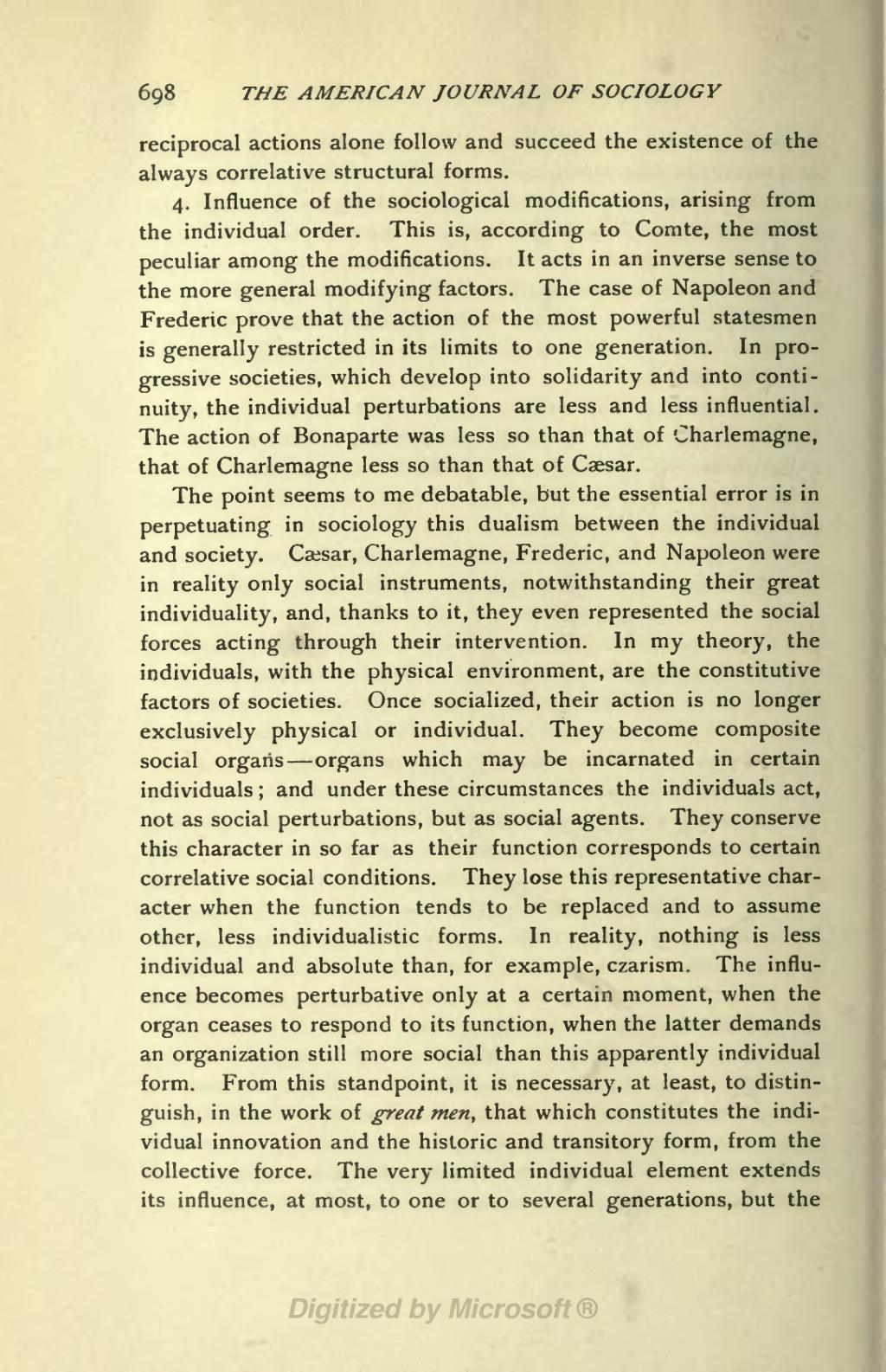698 THE AMERICAN JOURNAL OF SOCIOLOGY
reciprocal actions alone follow and succeed the existence of the always correlative structural forms.
4. Influence of the sociological modifications, arising from the individual order. This is, according to Comte, the most peculiar among the modifications. It acts in an inverse sense to the more general modifying factors. The case of Napoleon and Frederic prove that the action of the most powerful statesmen is generally restricted in its limits to one generation. In pro- gressive societies, which develop into solidarity and into conti- nuity, the individual perturbations are less and less influential. The action of Bonaparte was less so than that of Charlemagne, that of Charlemagne less so than that of Caesar.
The point seems to me debatable, but the essential error is in perpetuating in sociology this dualism between the individual and society. Caesar, Charlemagne, Frederic, and Napoleon were in reality only social instruments, notwithstanding their great individuality, and, thanks to it, they even represented the social forces acting through their intervention. In my theory, the individuals, with the physical environment, are the constitutive factors of societies. Once socialized, their action is no longer exclusively physical or individual. They become composite social organs organs which may be incarnated in certain individuals; and under these circumstances the individuals act, not as social perturbations, but as social agents. They conserve this character in so far as their function corresponds to certain correlative social conditions. They lose this representative char- acter when the function tends to be replaced and to assume other, less individualistic forms. In reality, nothing is less individual and absolute than, for example, czarism. The influ- ence becomes perturbative only at a certain moment, when the organ ceases to respond to its function, when the latter demands an organization still more social than this apparently individual form. From this standpoint, it is necessary, at least, to distin- guish, in the work of great men, that which constitutes the indi- vidual innovation and the historic and transitory form, from the collective force. The very limited individual element extends its influence, at most, to one or to several generations, but the
